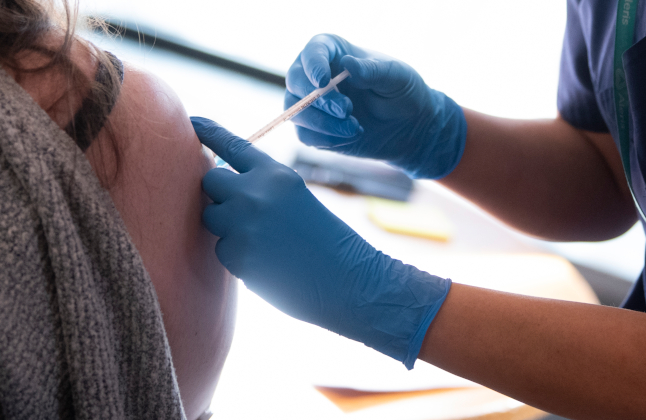Two weeks ago the Stockholm region started vaccinating persons born 1946 or earlier.
This week there are more than 6,600 open vaccination slots for the age group.
Magnus Thyberg, vaccination coordinator for the Stockholm region, in a statement on Wednesday encouraged everyone who meets the requirements to get vaccinated, saying: “We have a quick pace with vaccinations right now and I want to encourage those that have the possibility to book a slot at one of our four vaccination surgeries which have a capacity of over 10,000 slots this week.”
The surgeries are located in suburbs Älsvjö, Täby, Solna and Stockholm inner city. Vaccination slots are booked through the app Alltid Öppet and Swedish identification BankID is required when booking – however your local health centre can help if you are unable to or don’t want to use BankID.
There are no drop-in slots, so you need to book a place. The vaccination is free for everyone, including foreign nationals in Sweden.
Letters are also being sent to those between the ages of 75 and 79, with instructions on how to book a Covid-19 vaccine.
The vaccination process is currently in what has been called Phase 2 in Sweden.
Phase 3 will include the age group 60 to 64, and all adults who belong to a risk group. This phase is expected to start in April in Stockholm.
Phase 4, which includes everyone else over the age of 18, is expected to start in May, having previously been pushed back.
The Stockholm region was previously criticised for having a large amount of unused slots during the Easter break.
In an interview with the Expressen newspaper, Thyberg cited the opening hours as a potential reason for the low interest in appointments, with weekend mornings left with many unused slots. He said no vaccines were wasted despite the low levels of vaccinations during the break.



 Please whitelist us to continue reading.
Please whitelist us to continue reading.
Member comments